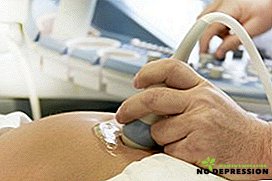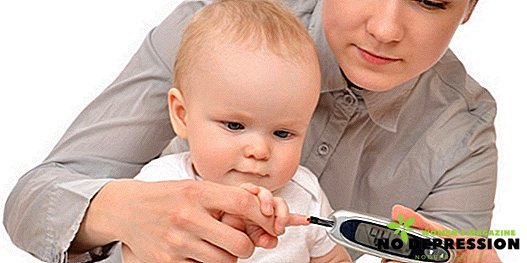Through a blood test today, it is realistic to determine the level of hCG to confirm or exclude the fact of pregnancy in a woman. In addition, it is thus possible to diagnose the presence of a life-threatening tumor in the body, not only of the weaker sex, but also in men. The level of this hormone varies in pregnant women, depending on the period of gestation.

What is hCG and why it is needed
A blood test for the level of human chorionic gonadotropin in a woman's body allows you to determine pregnancy at the earliest possible time when ordinary tests are not yet sensitive to hormones. With it, it is realistic to know that the girl is pregnant at the end of the first week after fertilization. At the same time, tests most often show the presence of an embryo only after a week of delayed menstruation.
This hormone is produced by the chorion (or rather, its tissues) after the embryo is implanted in the uterine wall. After a week it can be found in the blood of a pregnant woman.
It is an indicator of the full growth and development of the future baby.
According to its characteristics, such a hormone is identical to luteinizing and follicle-stimulating, which play an important role in the process of maturation of eggs, their release from the follicle and in fact in the usefulness of the menstrual cycle. The distinctive characteristic lies in the sequence of the amino acid (protein) chain.
The highest rates of human chorionic gonadotropin are observed at approximately 10 weeks from the beginning of pregnancy, after which its levels begin to fall smoothly. That is why it is possible to confirm pregnancy in terms from the beginning of conception up to 11 weeks. In the case of threatened miscarriage and missed abortion, a deviation from the established hCG rate is observed.
Thus, using the analysis of the level of this hormone in the blood or urine is available to identify the following conditions:
- early pregnancy;
- the presence of tumors (in people of both sexes) in the digestive tract, uterus, testes, lungs, kidneys;
- blistering - after a poor-quality egg cell is fertilized;
- chorionic carcinoma (develops from chorionic villi, a rare type of tumor);
- deviations from the full development and growth of the embryo.
 It should be said that an increase in human chorionic gonadotoropin in the absence of pregnancy may indicate the presence of a tumor process in the body. In early pregnancy, a decrease in its level most often occurs due to serious deviations in the development of the embryo.
It should be said that an increase in human chorionic gonadotoropin in the absence of pregnancy may indicate the presence of a tumor process in the body. In early pregnancy, a decrease in its level most often occurs due to serious deviations in the development of the embryo.
The composition of hCG includes a colossal amount of protein: 237 species of it. There is a predominance of the activity of substances similar in chemical composition with the luteinizing hormone, but in many ways superior to it. At the same time the level of substances like FLG is lower (necessary for the maturation of the follicle).
As you know, in a woman of childbearing age, follicle-stimulating hormone is higher in level in the first phase of the menstrual cycle. Namely, the luteinizing mission is to prepare the female body for pregnancy.
Chorionic gonadotropin increases stress resistance and resistance to infections due to increased production of adrenal cortex hormones.
If such a hormone is introduced into the body of a woman who is not pregnant, an increase in the amount of progesterone and estrogen will be traced, as well as maintaining the period of functionality of the corpus luteum, which occurs after the release of the egg from the follicle.
Deviations of hCG during pregnancy
As mentioned above, the highest level of human chorionic gonadotropine is observed at about the 10th - 11th week after conception. At this point, it reaches 291,000 honey. And at this time, the reduction of this hormone most often means a threat to the life of the embryo. In some cases, this may mean that the gestation period is incorrect.
Causes of low levels of hCG in pregnant women at different periods:
- replanning of the fetus;
- risks of spontaneous abortion abortion;
- pregnancy complication - violation of placental functionality;

- frozen fruit;
- pregnancy that does not develop;
- violation of fetal development.
However, in some cases there is a decrease in the normal level of hCG in pregnant women, which also indicates the following deviations:
- a serious complication is gestosis (edema, protein in the urine, high blood pressure, seizures);
- diabetes;
- multiple births;
- abnormalities at the level of the chromosome set;
- if necessary, take gestageny.
Any deviations from the norm should alert the woman and find the cause of such changes. A timely appeal to a specialist always gives a chance to save the situation. Pregnant women should be monitored regularly by an obstetrician-gynecologist and visit him in a timely manner, as well as follow all the recommendations and undergo the required diagnostic measures.
Table of the approximate dynamics of growth of hCG by day with normally developing pregnancy
It should be noted that each individual laboratory has its own indicators, therefore, first of all, it is important to take into account the specifications of the particular diagnostic center to which the woman turned.
| Duration of gestation by day (from conception) | HCG level (iU / ml) | ||
| 12 to 13 day | up to 101 | ||
| 14 to 16 | 101 - 201 | ||
| 16 to 17 | 201 - 1001 | ||
| 17 - 19 days | 1051 - 3761 | ||
| From 20 - 22 days | 1941 - 6531 | ||
| 22 to 23 days | 3401 - 10811 | ||
| 24-25 day | 5681 - 17051 | ||
| From 26 to 28 days | 9051 - 23341 | ||
| 28 - 29 day | 11231 - 30882 | ||
| 30 to 31 days | 16651 - 43222 | ||
| 32 - 33 days | 25531 - 57641 | ||
| From 34 to 36 days | 31701 - 73281 | ||
| 36 - 37 day | 40701 - 88791 | ||
| From 38 to 40 | 49811 - 102541 | ||
| 40 - 41 days | 58201 - 112871 | ||
| 6-7 weeks | 64605 - 116320 | ||
If the analysis or test was carried out earlier than the required period, there may also be some deviations from the norm. It happens that in the presence of pregnancy, the level of chorionic gonadotropin is below the expected rate.
 In the presence of ectopic pregnancy, the results of the tests do not correspond to the desired level.
In the presence of ectopic pregnancy, the results of the tests do not correspond to the desired level.
If there is any slight suspicion of the fact of tubal pregnancy, you should immediately inform the specialist about it and go through all the required diagnostic measures: an ultrasound examination (allowing you to see or not see a fertilized egg in the uterus), an x-ray examination (if indicated, if all the facts show that the fertilized egg is not attached to the uterus, and "stuck" in the fallopian tubes).
Ectopic pregnancy can occur with various inflammatory processes, developing in one tube or in two at the same time (salpingitis, salpingo-oophoritis).
HCG during pregnancy rate weekly: table
The level of human chorionic gonadotropin tends to change over time. Therefore, every week you can track its quantity to make sure that the pregnancy is fully occurring.
| Real pregnancy in weeks | Indications hCG, honey in ml |
| The first two weeks from conception | 254 - 155 |
| From 2 to 3 weeks | 100 - 4871 |
| From 3 to 4 weeks | 1111 - 31501 |
| From 4 to 5 | 2561 - 82301 |
| From 5 to 6 | 23101 - 151001 |
| From 6 to 7 | 27301 - 233001 |
| 7-10 weeks from conception | 20901 - 291001 |
| 11-15 weeks | 6141 - 103001 |
| 16 to 21 weeks | 4722 - 80102 |
| From 21 to 39 weeks of pregnancy | 2702 - 78102 |
In any case, a pregnant woman is recommended to consult with her supervising doctor, having on her hands the results of tests. Only an experienced doctor can determine if there is a pathology or everything is in order.
Factors Affecting HCG Level
Any deviations from the standards for the amount of chorionic gonadotropin content may indicate serious problems. Therefore, it is impossible to ignore such a fact.
It is important to know that in a non-pregnant woman and in a man should not be detected in the blood of an increased amount of this hormone.
If this occurs, the body may have a tumor process that is localized in any organ of the abdominal cavity. Therefore, additional diagnostic methods will be required.
If a pregnant woman has low hCG (below the established norm), this can be the cause of unpleasant moments, like missed abortion or ectopic, the threat of miscarriage. Therefore, to delay the adoption of the necessary measures is impossible. However, only an obstetrician-gynecologist can give a realistic assessment of the condition of the pregnant.
An increase in the level of this hormone can be observed during a multiple pregnancy, when a woman is expecting twins or triplets. But it can also indicate different types of chromosomal abnormalities. To understand the reason, additional examinations are needed under the supervision of a specialist.
Often, hormonal drugs and other medications in one way or another affect the amount of human chorionic gonadotropin. Therefore, for the correct diagnosis, it is important to inform the doctor about all the medicines that a woman takes.
In order for the result of tests for HCG to be reliable, it is necessary to donate blood before breakfast. It is best to conduct diagnostics in one laboratory at all stages of pregnancy, since the indicators of different medical centers usually differ. In the case of the use of drugs for treatment or hormone replacement agents, you need to say this to the doctor.
Additional information about HCG can be obtained from a specialist in the following video.













